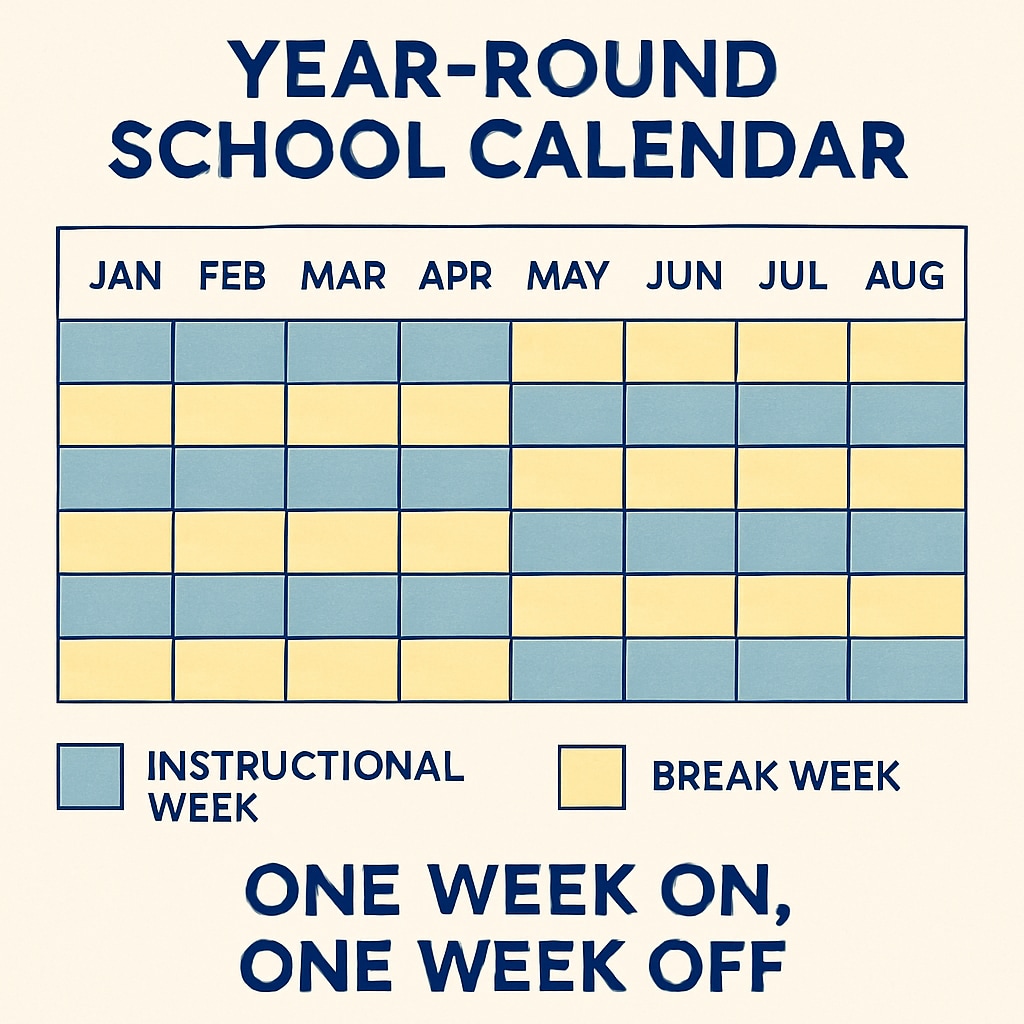Traditional educational systems often rely on extended summer breaks, which have been shown to negatively impact learning retention among K-12 students. This phenomenon, known as “summer learning loss,” results in significant setbacks in academic progress. In contrast, year-round schooling minimizes this issue, offering alternative schedules such as “one week on, one week off” to balance consistent learning with adequate rest. By rethinking the academic calendar, educators can enhance knowledge retention and better support student development.
Why Summer Breaks Lead to Learning Loss
Long summer breaks, typically lasting two to three months, disrupt the continuity of learning. During this period, students often forget a substantial portion of the material they learned in the previous academic year. Studies from institutions like Britannica reveal that students lose approximately one month of academic progress over the summer, particularly in subjects like math and reading. This loss disproportionately affects students from low-income families, who may lack access to enriching summer activities and resources.

Year-Round Schooling: An Effective Alternative
Year-round schooling restructures the academic calendar by distributing breaks throughout the year, rather than consolidating them into a single summer vacation. One innovative model includes a “one week on, one week off” schedule, which provides students with regular intervals for rest while maintaining academic consistency. This approach helps mitigate learning loss by reducing the time between instructional periods.
The advantages of year-round schooling include:
- Improved knowledge retention due to shorter breaks between learning periods.
- Reduced teacher burnout, as educators also benefit from regular intervals of rest.
- Enhanced opportunities for remediation and enrichment during shorter breaks.
- Better alignment with parental work schedules, reducing the need for summer childcare.

Balancing Learning and Rest
While year-round schooling offers clear academic benefits, it also addresses the need for balance between study and relaxation. Short, frequent breaks prevent student fatigue and keep motivation levels high. In addition, these breaks allow families to engage in meaningful activities together, fostering emotional well-being alongside cognitive development.
For example, students in year-round programs can participate in short-term camps, community service, or creative workshops during their breaks. These activities not only refresh their minds but also provide experiential learning opportunities, complementing classroom education. As a result, students return to school more focused and prepared to absorb new material.
Implementation Challenges and Solutions
Despite its benefits, transitioning to year-round schooling poses logistical challenges. Schools may face resistance from parents accustomed to traditional calendars, as well as budget constraints for implementing new schedules. Additionally, extracurricular programs, transportation systems, and community infrastructure must adapt to the revised calendar.
To address these challenges, educators and policymakers can:
- Engage with parents and communities through informational campaigns highlighting the benefits of year-round schooling.
- Use pilot programs to test alternative schedules before full implementation.
- Collaborate with local organizations to align extracurricular offerings with the new calendar.
- Secure funding to support necessary adjustments in school facilities and transportation systems.
By addressing these obstacles effectively, schools can transition to year-round schedules that benefit students, teachers, and families alike.
Conclusion: Year-round schooling represents a promising solution to the challenges posed by traditional summer breaks. By adopting alternative schedules such as “one week on, one week off,” educators can reduce learning loss, improve student retention, and create a balanced academic environment. As schools explore innovative ways to enhance education, year-round models offer an opportunity to rethink how we structure learning for future generations.


